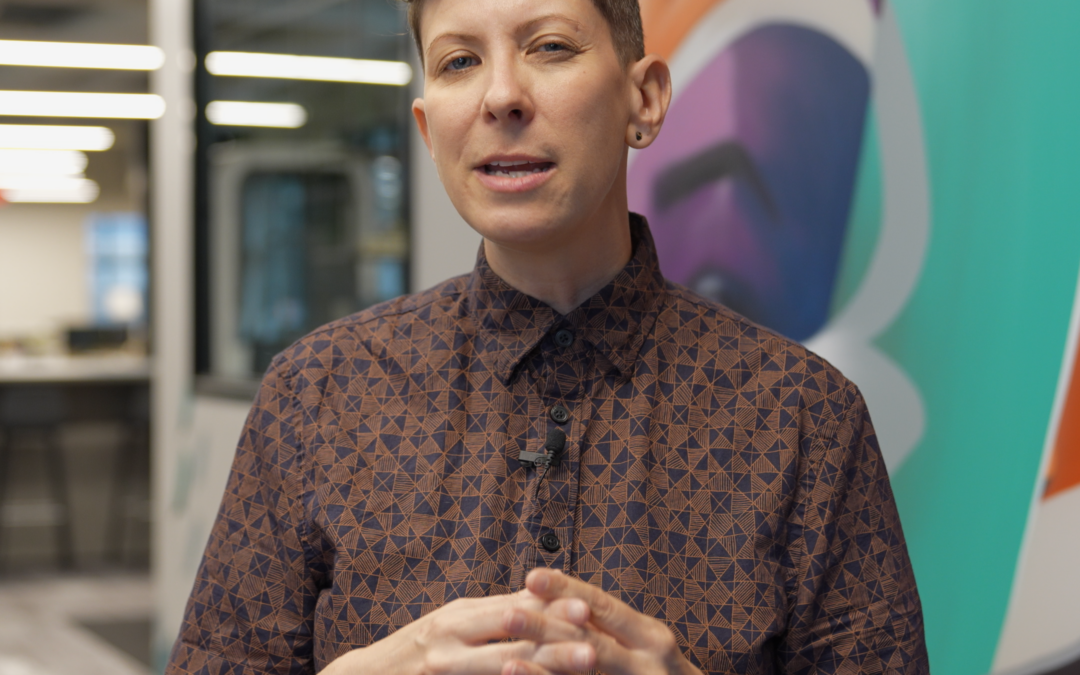Training and Team Development
ASHLEY BOOTH
Video Transcript
At Element Three, we are often asked what role should we have in our in-house marketing team and what training should we be providing to our teams to meet the demands of the business where it’s going in the future? Now, at Element three, we believe that every organization should have an in-house marketing team long term. That does not mean that there aren’t times where you don’t have a team or you’re building a team. And it also doesn’t mean that your core team should be able to do everything and you never use outside partners.
You should have a core team that has a really specific set of skills that handles a lot of the things that you need inside of your organization, depending on where marketing needs to serve. And you also often need partners to supplement or strategy special projects, big picture things like brand websites. All of those pieces, there’s a lot of different factors that go into the mix between in-house and partners, but that’s not really what we’re here to talk about.
We’re really here to talk about is training inside of the organization. We often either put together training programs or support training for teams that are being built or that are existing and need to level up their skills. Before we talk about the categories, it’s important to ensure that you have a skills assessment. That way you can really understand where are the skills and the gaps inside of your team and your external partners. It’s also really helpful to understand if there are really key places where a person or your entire team wants to grow or needs to grow based upon where the organization is going. Let’s talk about four different categories.
One is in formal training, so we often do this where we have where we just meet regularly and train on topics as they become important. So sometimes we have a digital manager or a digital strategist here at Element three, a meeting with an in-house digital team to level them up on really specific skills Google Analytics, tagging and tracking, SEO, whatever it is that they need to be building their skills and having weekly meetings, working one on one, giving them homework, having them come back.
And the homework always ties to actual things that need to happen in the business so that they’re learning skills, they’re getting feedback, they’re getting mentoring, and it’s really an ongoing process. We do that with really specific skill sets like digital and creative, and we also do it from a consulting perspective. We meet with someone, let’s say, who is a marketing manager who really wants to level up their skills to become a marketing director or to take over a new area. And we do 1 to 1 meetings where we’re training and mentoring, and again giving them homework or working through things, having them ask questions. And that’s really a good way to work through things is a not just informal 1 to 1.
What’s important? What needs to happen today? Another area to consider is formal training. Now there’s a lot of different ways that you can tackle formal training. Some of that is like classes, certifications, but sometimes we put together formal training programs where we have quarterly trainings with a group of marketing strategists or with an entire marketing team, and we’re teaching them things like how to put together a marketing plan, how to set goals, how to put together a content strategy, and that is more formal.
So that can come from a lot of different ways, like I said. Another area to consider is sales training. A lot of times we see organizations where a person or people on their team have kind of a hybrid role where they sit inside of the marketing department, but they may be the owner of the partner relationships.
They may have a hybrid sales marketing role. And what we find is a lot of times people who have these hybrid roles who sit inside of marketing, have never gotten any kind of sales training, and especially for someone who is owning dealer relationships or partner relationships, a lot of that is sales. You’re cultivating relationships, you’re getting partnerships. You as an organization might be getting leads or you’re getting feedback and having sales training to understand how to talk to people, cultivate those relationships, foster those relationships is really, really important for people who sit inside of marketing teams in a hybrid role. And the last one is really just specific cross training for a person.
A lot of times in the informal training, it may be someone who wants to grow, be promoted inside of their roles, but there is really something specific. If there is one person who needs to be cross-trained or who you’re hoping to promote or you’re hoping to move into a new role. That often requires its own type of training.
Sometimes it’s shadowing other teams, sometimes it’s formal training, sometimes it’s sales training. And it could be a combination of all the other things we’ve talked about. But that kind of moving into a new role, wanting to be promoted just often requires a little bit more specificity. And I mean, if we’re talking about one person, then you want to make sure that the training is really personalized for that person rather than just kind of throwing some random articles and books at someone and being like, okay, read these things and then you’ll be ready. So you may be thinking, All right, that’s a great framework, but what do I do with this? Well, it’s really like first assessing what kind of training you believe that you need. You don’t have to have all the answers. If you’re not an expert in training and education, you don’t need to have all the answers.
But it’s really is there anyone in-house who can do informal or formal training? That could be someone on the sales team who has a lot of training. Background marketing team h.r. Often has a lot of resources. So you start looking in-house and you’re like, what do we have in-house that can provide us the training? And then you start looking at external partners. Is there a partner like element three that we need to put together a training program and let us know what resources are available?
Is there a specific tool that the team is using that has a resource center or a educational track that you can just be having them do? Or is there a sales specific trainer or another specific type of trainer that you need to resource? We often have clients come to us and they’re like, I don’t I don’t know. And we help them put together and sometimes we’re doing the training and sometimes we’re just providing the resource that they need to go to to get the training that they need. So start in-house and then look at your partners.
And there’s a lot of different ways that you can put together training programs that will make a difference for your people and your business long term.
Sharing Expertise
What good is learning something if you don't pass it on? You can tap into what we know right now – from dealer programs to determining brand architecture – and you don't have to give us a thing.




